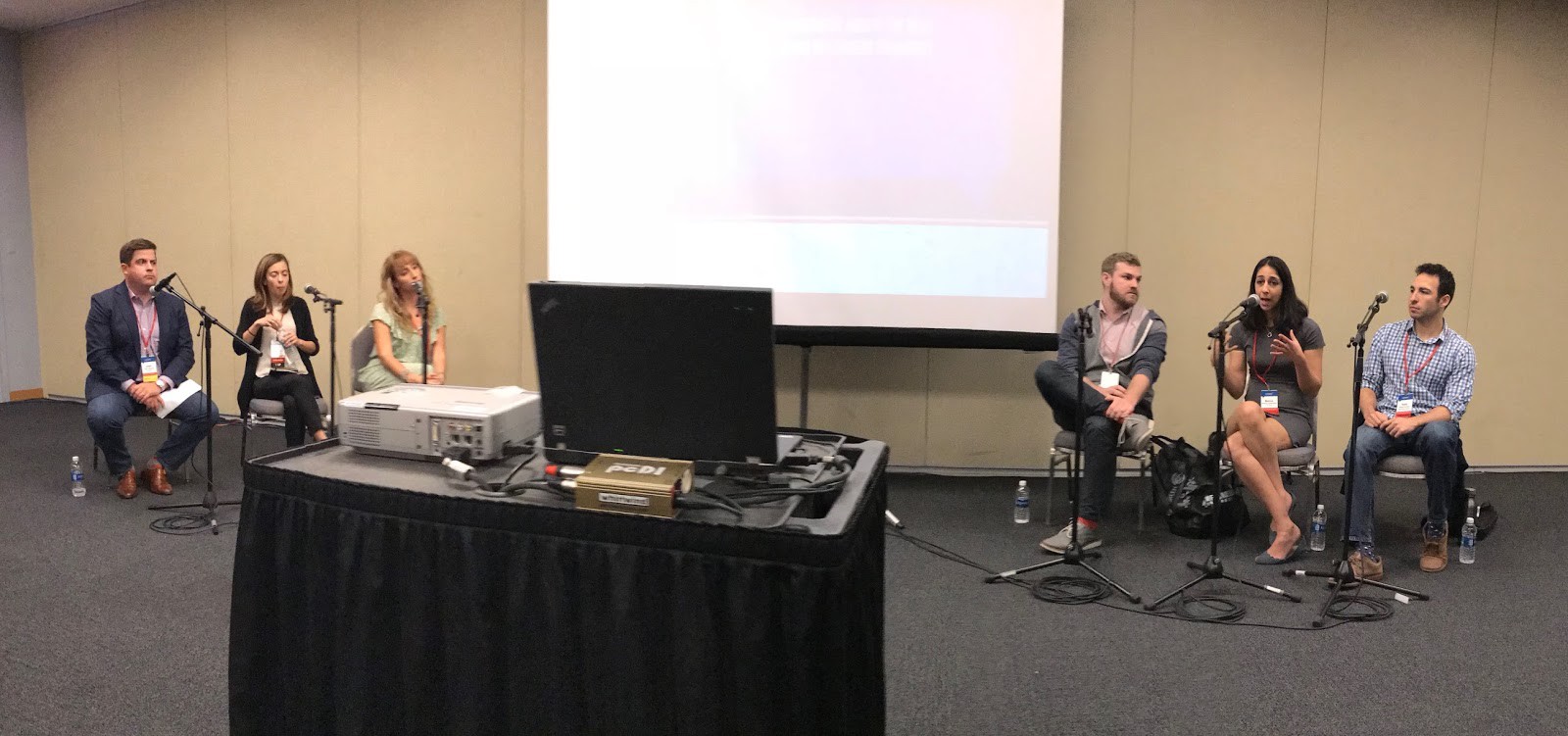Last week, I was lucky enough to attend the New Founders Conference in Chicago and speak on a panel about millennial engagement in politics. I met with so many inspiring leaders working to make the political process more fair and accessible to improve the state of the country.
Three years ago I moved from Chicago to the Bay Area, and this trip reminded me how much I’ve missed Chicago. Excited by my memory of the train stops, the order of streets north of the river, and my favorite boba place, I was happy for a chance to go back on a warm, sunny weekend for the conference. But until I was back for the New Founders conference, I had never appreciated how diverse and socially conscious Chicago was. I grew up in LA and live in the Bay Area, so there are some significant gaps in my understanding of large segments of the country, especially districts that went red. Chicago is an incredible hub of art, tech, LGBTQ+ culture, finance, and education. It was the perfect backdrop for a conference that brought together some amazing leaders.
Going into the New Founders Conference, I was most excited to meet with other leaders, hear their stories, and brainstorm with them on how to continue moving forward and make lasting progress. While it is difficult in conference format to have conversations with speakers, there were some panels that I appreciated for their openness and clear commitment to accessibility. One example was Nick O’Neill from 5calls, who offered his email address to anyone who wanted to embed 5calls into their app. His message is clear - we are all working towards the same goal; we’re here to improve the world rather than make money. Instead of wasting time rebuilding existing tools to compete, let’s use everything we’ve already got to keep pushing forward.
While the speakers and panels were thought provoking, I enjoyed my one-on-one conversations the most. Whether it was with students there with their schools, activists from Chicago, or other founders, I felt like this was where the magic of the day was. I was excited at how many names I recognized, and I got to meet people I’d only spoken to on the phone.

My panel, the ‘Millennial Engagement: How is the New Generation of Leaders Engaging?’, was an excellent fit for Magnify Progress. Founded around the idea that young people, stereotyped as apathetic to politics, could be the most powerful and engaging demographic. Everyone cares about some cause, whether it’s based on their personal experience, a story that touched them, or a societal norm to challenge. I don’t think the problem is millennial apathy, but it may be true that millennial involvement in politics looks different than that of previous generations. Often disillusioned with a political system that seems increasingly isolated from my life, and unable to pass legislation, I think millennials are more interested in getting involved in causes over engaging with their representatives. For myself, I have long believed that I can make more of an impact by volunteering with Habitat for Humanity or tutoring math than by spending my time calling a politician. As someone who cares about education, I want to find a group bringing education to economically underrepresented communities, rather than put my hope in a political process that has been ‘dirty’ and seemingly unsuccessful most of my life. I want to feel closely tied to the solution, and Washington feels far away.
Magnify Progress is an answer to that disillusionment. Rather than focus solely on calling representatives, we give people additional opportunities to do local actions. Rather than feel like you’re living in a constant fire drill, you can choose the cause or causes you care more about and focus on those actions. Magnify Progress is a tool to extend the impact many people already have. It is difficult enough to find things to do (it’s difficult for us to find things, and we’re doing it full time these days), but our platform makes it easier, so busy people can focus on acting.